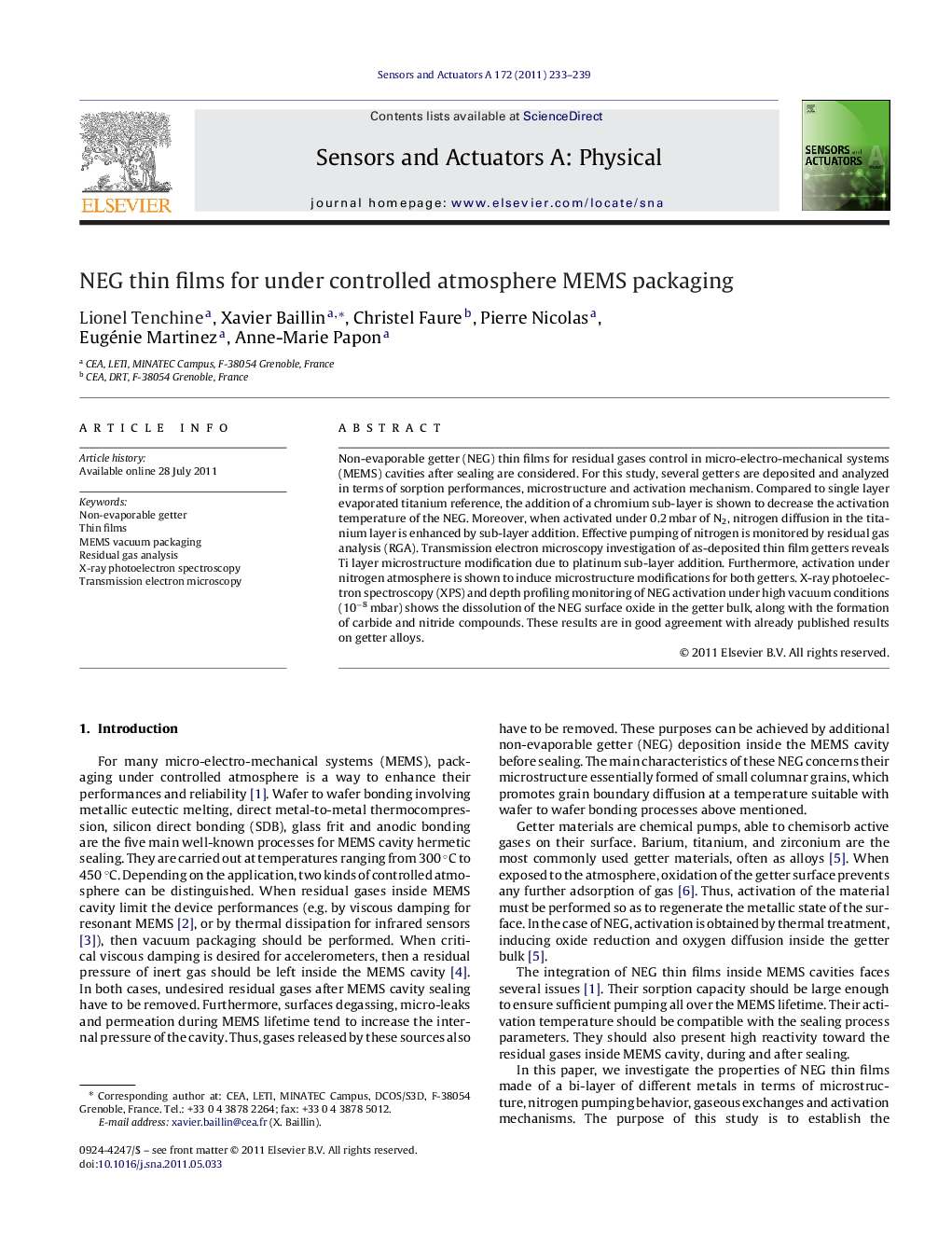| Article ID | Journal | Published Year | Pages | File Type |
|---|---|---|---|---|
| 10409329 | Sensors and Actuators A: Physical | 2011 | 7 Pages |
Abstract
Non-evaporable getter (NEG) thin films for residual gases control in micro-electro-mechanical systems (MEMS) cavities after sealing are considered. For this study, several getters are deposited and analyzed in terms of sorption performances, microstructure and activation mechanism. Compared to single layer evaporated titanium reference, the addition of a chromium sub-layer is shown to decrease the activation temperature of the NEG. Moreover, when activated under 0.2Â mbar of N2, nitrogen diffusion in the titanium layer is enhanced by sub-layer addition. Effective pumping of nitrogen is monitored by residual gas analysis (RGA). Transmission electron microscopy investigation of as-deposited thin film getters reveals Ti layer microstructure modification due to platinum sub-layer addition. Furthermore, activation under nitrogen atmosphere is shown to induce microstructure modifications for both getters. X-ray photoelectron spectroscopy (XPS) and depth profiling monitoring of NEG activation under high vacuum conditions (10â8Â mbar) shows the dissolution of the NEG surface oxide in the getter bulk, along with the formation of carbide and nitride compounds. These results are in good agreement with already published results on getter alloys.
Keywords
Related Topics
Physical Sciences and Engineering
Chemistry
Electrochemistry
Authors
Lionel Tenchine, Xavier Baillin, Christel Faure, Pierre Nicolas, Eugénie Martinez, Anne-Marie Papon,
